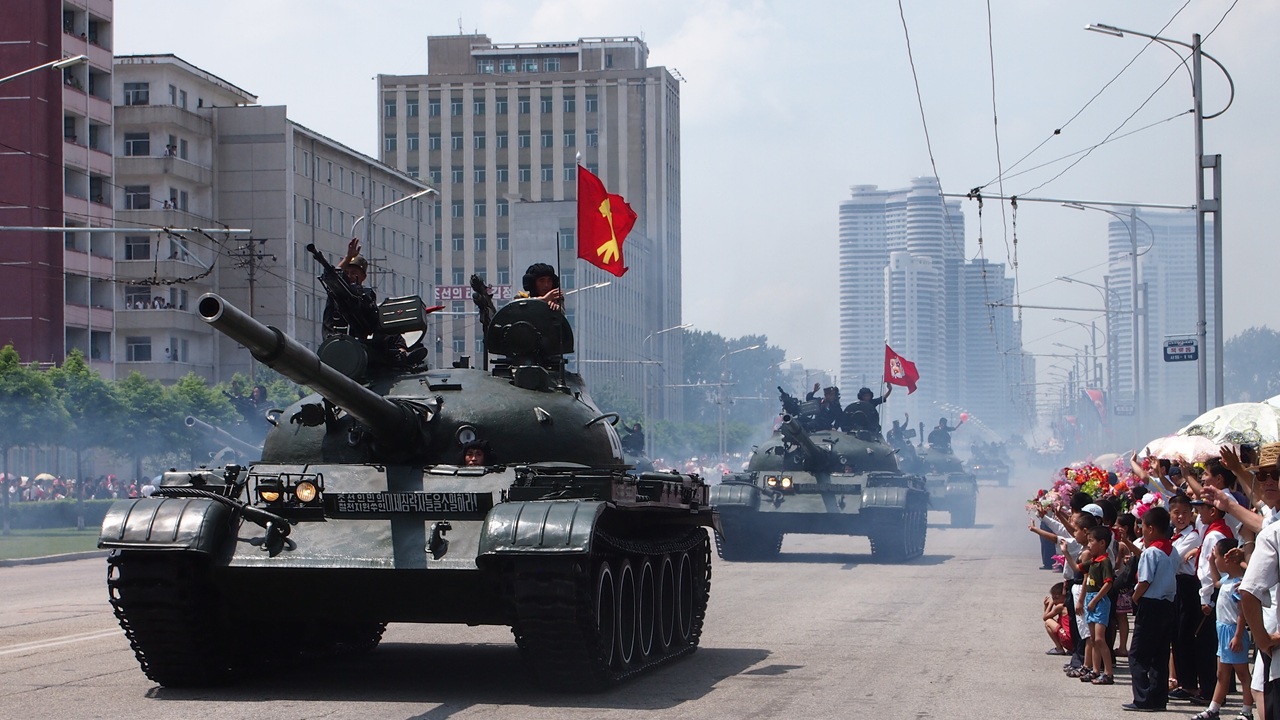In addition to the contingent that is fighting alongside the Russian forces, Pyongyang has sent millions of artillery munitions and other security assistance to Moscow.
North Korea has deployed additional troops in Russia to fight for Moscow.
The South Korean intelligence services assess that Pyongyang sent thousands of reinforcements to the North Korean contingent fighting alongside the Russian military—which was briefly pulled off of the line of contact in Ukraine-occupied Kursk following catastrophic losses.
More North Korean Troops Fighting for Russia
According to recent South Korean news reports, the North Korean military has deployed between 1,000 and 3,000 additional troops in Russia.
“North Korea reportedly recently deployed additional troops to Kursk Oblast as North Korea continues to expand its military capabilities through cooperation with Russia,” the Institute for the Study of War assessed in its latest operational estimate of the conflict.
Pyongyang has already sent approximately 11,000 men to fight alongside the Russian military. However, after several weeks of intense fighting in the Kursk Oblast, in Russia, Russian commanders were forced to pull the North Korean contingent off the frontlines because of the heavy casualties it was taking. South Korean and Ukrainian intelligence estimates assess that the North Koreans lost more than 4,000 men killed and wounded during that period—a casualty rate nearing 40 percent.
North Korea is a Valuable Partner for Moscow
North Korea has proved a valuable partner for Russian President Vladimir Putin. At various points in the war when the Russian forces were struggling, Pyongyang stepped up its cooperation with the Kremlin, sending men and munitions to aid Moscow.
According to the head of the Main Intelligence Directorate of the Ministry of Defense of Ukraine, Kyrylo Budanov, the importance of Iranian assistance to Russia is subsiding. Instead, North Korea now seems to be closest to the Kremlin.
“There is a bare minimum of Iranian capabilities [in the frontlines]. Now almost everything is North Korean,” Budanov said.
Russia has had few strong allies throughout the three-year war. Although Belarus aided Russia from the first day—notably hosting Russian troops in the run-up to the war, and allowing them to use Belarusian territory as a springboard from which to launch an ill-fated lightning assault on Kyiv—it is difficult to assess Minsk’s actual independence from Moscow.
Within months after the war began, Iran emerged as Russia’s first true major foreign partner. In exchange for money and diplomatic support, Tehran provided the Russian armed forces with thousands of unmanned aerial systems and hundreds of long-range missiles. But now, it appears that the Kremlin is drawing most of its foreign military support from North Korea. In addition to the contingent that is fighting alongside the Russian forces, Pyongyang has sent millions of artillery munitions and other security assistance to Moscow.
But besides the operational and tactical benefits of Pyongyang’s assistance to Moscow, this support has had drawbacks for the Kremlin as well. Accepting help from an international pariah like North Korea—broadly seen in an unfavorable light, particularly in East Asia—is not the best for Russia’s image on the world stage.
“Let’s start with the fact of them engaging North Korea. In fact, this is humiliating for the Russian Federation as someone almost claiming the role of a world power, or at least the world’s second most powerful army. It is humiliating, but the realities are such that they were forced to do this,” Budanov stated.
Indeed, the Russo-North Korean relationship seems to be getting even closer. This week, Putin met with North Korean Politburo member Ri Hi Yong to discuss Russian–North Korean relations.
While the United States is participating in peace negotiations with Russia, the Russian leader appears to be consolidating a bloc comprised of some of America’s most significant adversaries—Russia, Iran, and North Korea.
About the Author: Stavros Atlamazoglou
Stavros Atlamazoglou is a seasoned defense journalist specializing in special operations and a Hellenic Army veteran (national service with the 575th Marine Battalion and Army HQ). He holds a BA from the Johns Hopkins University and an MA from the Johns Hopkins’ School of Advanced International Studies (SAIS). His work has been featured in Business Insider, Sandboxx, and SOFREP.
Image: Shutterstock.
